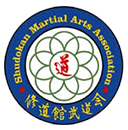The Student As Teacher
By Suino, NicklausThis article first appeared in the “SMAA Journal” Volume 16, Issue 3.
Are you an experienced student of martial arts?
Do you enjoy helping your juniors?
As a student of budo, what should you know about teaching martial arts? Even if you haven't been officially designated as an instructor, you may occasionally be called upon to help another student. Even in the course of normal training, you may find yourself assisting your training partner by commenting on his or her technique. There are three things you ought to know: (1) be positive, (2) tread lightly, and (3) be sure you know before you teach.
Be Positive: every student of the martial arts has many good qualities, and it's critical to let them know you see that. Simply showing up to the dojo regularly means giving up other activities, and the commitment shown by even the least-talented person in the dojo is commendable. Look for what your juniors are doing right, and be sure to let them know what those things are.
Tread Lightly: your dojo mates probably view you as an equal, even if you've been training longer. Remember that most students bond with the leader of the school, and adjust their thinking to accept advice mainly from that person. As a result, they may not feel warmly toward you if you find fault with their techniques. If you must be critical, seek the gentlest way to do so, and share only the most important advice. One thoughtful comment, followed by practice of the corrected technique, is likely to result in improvement. Several comments, one after another, usually just confuse the listener, and rarely make a positive difference. Whatever you do, don't chime in when the sensei or sempai (“senior student”) is assisting another student!
Know Before You Teach: martial arts are complex. Before offering advice to another student, be sure you understand the technique thoroughly. If you are training with someone and you feel that they are doing a technique wrong, it is almost always better to ask the sensei for advice than it is to try to correct a fault you think you see. Imagine how you would feel if you "corrected" your training partner only to have the sensei explain the technique differently a moment later. And, as you can imagine, whatever amount of shame you might feel would probably be equaled by the resentment of the student you just tried to help!
Learn from an Authentic Japanese Karate Association
Looking to improve yourself in body and mind? Martial arts could be for you!
SMAA is a Japanese karate association, but we actually teach five different martial arts: Aikido, Iaido, Judo, Jujutsu, and Karate-do. Find out which one is right for you by giving us a call at (734) 720-0330 or submitting a contact form here.

